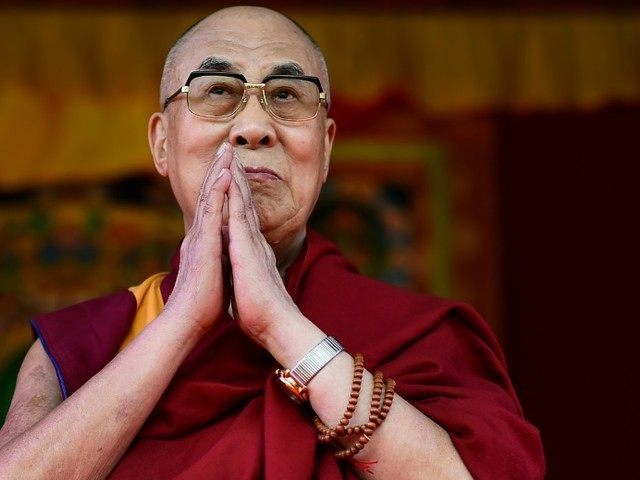China is continuing its push to promote further communist government meddling in Buddhism. An article in the state-run Global Times cites an “expert” warning that the religion’s living Buddhas could become “weapons of mass destruction” if not properly controlled by Beijing.
The piece, titled “Divine Intervention,” features warning from “ethnic and religious commentator” Zhou Quan that living Buddhas can be “a ‘weapon of mass destruction’ if used by evil or splittist forces.”
A living Buddha, or tulku, is someone religious scholars deem to possess the reincarnated identity of various forms of Buddha himself. Paramount among these is the Dalai Lama, the foremost Buddhist religious authority in the world. The Chinese government is working to replace religious scholars as the arbiters of who is deemed a living Buddha to prevent separatist or anti-communist monks from being promoted into positions of influence among the Buddhist population.
“Some Living Buddhas who were affirmed by the 14th Dalai Lama, the highest lama of Tibetan Buddhism, have been behind riots or self-immolations that aim to further the cause of Tibetan independence,” the Global Times article warns. “Many of the Living Buddhas verified by the Dalai Lama and Dharamsala-based ‘Tibetan government-in-exile’ have become the backbone of ethnic separatists,” he added.
“Living Buddhas can be very influential and deceptive. If they preach national conflicts and describe central government policies as ‘threats,’ their disciples and pilgrims would believe it with few doubts,” Zhou added.
The article also quotes a professor warning that ethnic unity is vital to the survival of communism, “a lesson from the collapse of the Soviet Union.”
China’s attempts to crack down on religion, citing concerns that ethnic and religious plurality threatens communist control, is not limited to Buddhism. Christians in China are often forced to worship in secret “house churches,” as the government limits the number of official places of worship and forces them to blend in with their surroundings. In eastern Zhejiang province, the Communist Party has taken down 2,000 crosses since a crackdown began in 2014 on public displays of Christianity.
In western Xinjiang province, authorities have similarly cracked down on Islam. Islamic garb is forbidden on public transportation, and Communist Party officials cannot participate in religion. “Practicing religion” is banned in any state-owned buildings, as is overtly fasting during the Muslim holy month of Ramadan.
With Buddhism, China has found a unique mode of control: establishing an online database of government-approved living Buddhas, ostensibly to prevent con artists from falsely claiming the title. Noticeably absent from the approved list of living Buddhas is the Dalai Lama.
“From the point of view of Beijing, the whole apparatus seems to be about giving Beijing control over the appointment of the next Dalai Lama,” Robbie Barnett, director of the Modern Tibet Studies Program at Columbia University, told the LA Times earlier this year. The current Dalai Lama is 80 years old, and many fear China will attempt to give a Beijing-friendly monk the official title, usurping the power of Buddhist authorities.
“Communist policy on religion is: You run Tibet by … having a lama who is credible enough to be influential when he says you should follow the Communist Party. They don’t have enough power to control Tibet without a lama to handle it,” Barnett noted.

COMMENTS
Please let us know if you're having issues with commenting.